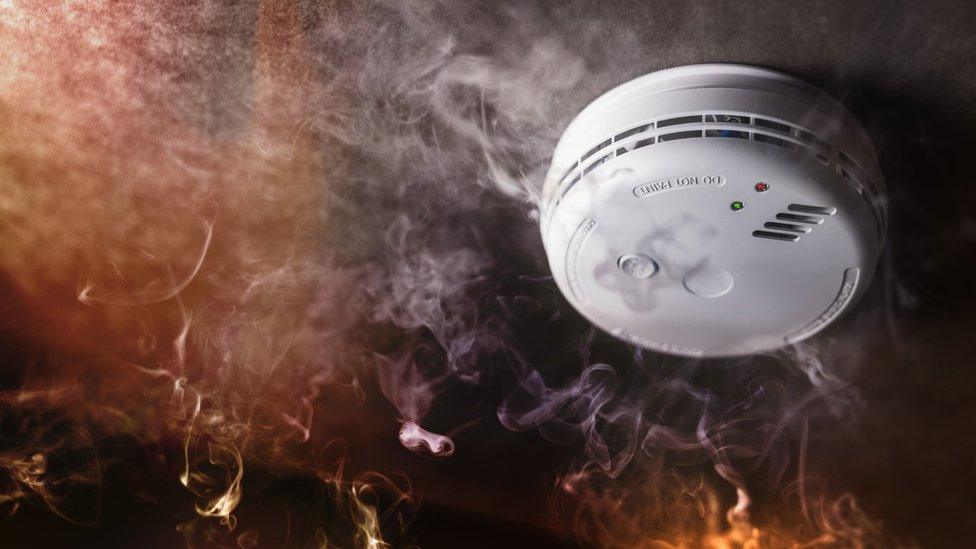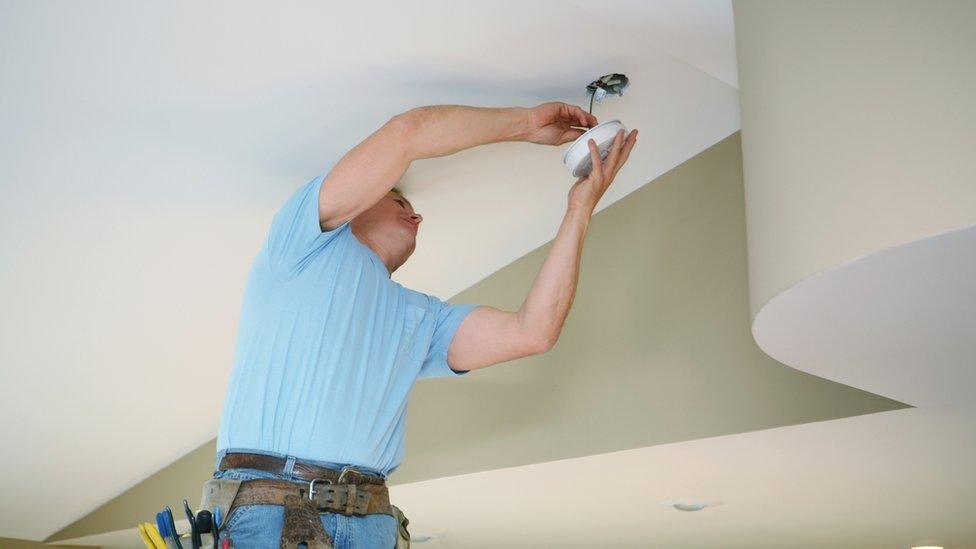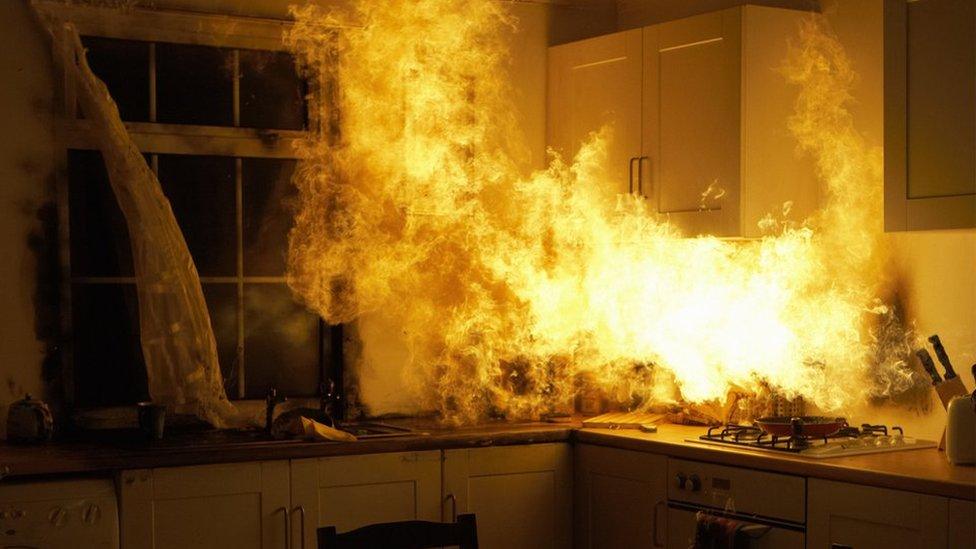Scottish government announces extra funding for smoke alarms ahead of new laws
- Published

The Scottish government has announced an extra £500,000 to help vulnerable people install fire alarms, two days before new rules come into force.
From Tuesday, every home in Scotland will be legally required to have interlinked smoke alarms.
However ministers said people would not be penalised if they needed more time to install the alarms.
Opposition parties have criticised the government for failing to properly publicise the new legislation.
The Scottish Conservatives say ministers should delay the scheme, while Labour says the new funding "will barely scratch the surface" of what is needed.
The £500,000 announced on Sunday doubles the funding already given to Care and Repair Scotland to help older and disabled people to install alarms.
Care and Repair Scotland is a charity which offers advice and assistance to help homeowners repair, improve or adapt their homes.
The Scottish Fire and Rescue Service has already received £1m to install alarms in homes of people at highest risk.

What are the new rules on smoke alarms?

Alarms that are connected to the mains need to be fitted by a qualified electrician
Every home must have the following:
one smoke alarm installed in the room most frequently used for general daytime living purposes
one smoke alarm in every circulation space on each storey, such as hallways and landings
one heat alarm installed in every kitchen
All alarms should be ceiling mounted and interlinked. Where there is a carbon-fuelled appliance (such as boilers, fires - including open fires - and heaters) or a flue, a carbon monoxide detector is also required - this does not need to be linked to the fire alarms.

New build and privately rented homes have been required to have interlinked smoke alarms for more than a decade.
The rules will also apply to owner-occupied homes and those in the social rented sector from 1 February. They place a legal duty on councils to monitor how many homes are compliant.
Housing Secretary Shona Robison said the alarms will save lives.
"We know that some homeowners may not be able to meet the cost of fitting the necessary alarms so had already provided £500,000 funding through Care and Repair Scotland to help elderly and disabled people," she said.
"We don't want funding to be a barrier to this important work, which is why we're now doubling this funding, taking our total support to help people install these alarms to £2m.
"We are in discussions with Care and Repair to ensure support continues up to and beyond the 1 February deadline, so that elderly and disabled people can make this fire safety improvement."
Treated unfairly
To be eligible for support from Care and Repair, people must live and own their own home in a council tax banding A-C. They must be of state pension age and receiving Pension Credit, or have a disability and in a support group for Employment and Support Allowance.
Miles Briggs, the Scottish Conservative's housing spokesman, said households had been treated unfairly over the introduction of the new laws.
"Rather than trying to cover the cracks, the SNP should postpone this scheme and produce a thorough plan to ensure households are able to meet the requirements," he added.
Scottish Labour's housing spokesman, Mark Griffin, welcomed the additional funding but added: "The last round of funding was enough to help just one person for every 10 eligible, so doubling it is hardly a job well done.
"The SNP must step up efforts to make sure everyone can afford these important upgrades and keep their homes safe."
Related topics
- Published1 February 2022
